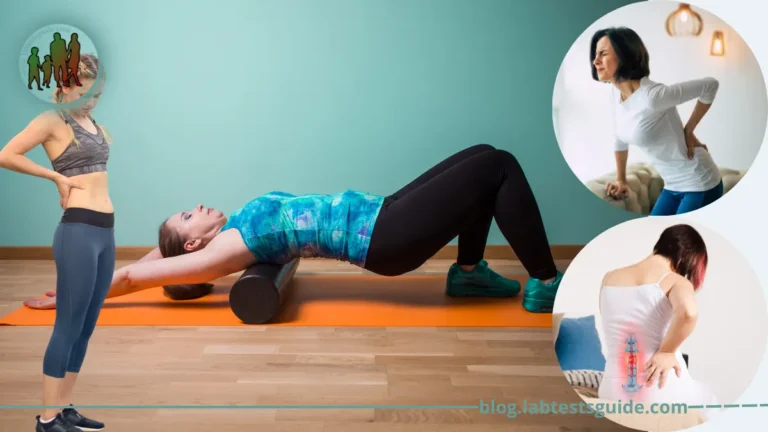Mosquito bites are a common annoyance that many people experience, especially during the warmer months. While mosquitoes are known for their itchy and irritating bites, they can also transmit diseases in some regions. Treating mosquito bites promptly can help alleviate discomfort and reduce the risk of complications.

This guide will provide you with valuable information on how to effectively treat mosquito bites at home. It will cover various aspects, including understanding mosquito bites, precautions, and prevention methods. Additionally, you’ll find a range of home remedies and additional tips for relief. Remember, if you experience severe symptoms or signs of infection, it’s important to seek medical attention.
Understanding Mosquito Bites:
Understanding mosquito bites can help you recognize the symptoms and effectively treat them.
Mosquito Bite Symptoms:
- Redness: Mosquito bites typically result in a small, raised, red bump on the skin.
- Itching: One of the most common symptoms is itching around the bite area.
- Swelling: Mosquito bites can cause mild to moderate swelling around the bite site.
- Pain: In most cases, mosquito bites are not painful, but some individuals may experience minor discomfort.
Why Do Mosquito Bites Itch?
- Mosquitoes inject saliva containing anticoagulants and proteins into the skin during biting.
- The body’s immune system recognizes these foreign substances and releases histamine.
- Histamine triggers an inflammatory response, causing itchiness, redness, and swelling.
It’s important to note that some individuals may have more significant reactions to mosquito bites, such as large swelling, intense itching, or even allergic reactions. These severe reactions may require medical attention.
Precautions and Prevention:
Here are some essential measures you can take.
Mosquito Bite Prevention:
- Use insect repellent: Apply mosquito repellents containing DEET, picaridin, or oil of lemon eucalyptus (for children above 3 years) to exposed skin.
- Wear protective clothing: Cover your skin as much as possible by wearing long sleeves, long pants, socks, and closed-toe shoes, especially during peak mosquito activity times.
- Use mosquito nets: When sleeping or resting in areas with high mosquito populations, use bed nets treated with insecticides.
- Avoid peak mosquito activity: Mosquitoes are most active during dawn and dusk, so try to limit your outdoor activities during these times.
- Secure screens and windows: Ensure that screens on windows and doors are intact and without holes to prevent mosquitoes from entering your living spaces.
Avoiding Mosquitoes:
- Remove standing water: Mosquitoes breed in stagnant water, so eliminate any standing water sources like flower pots, buckets, or birdbaths.
- Maintain your surroundings: Trim tall grass, bushes, and shrubs regularly to reduce mosquito resting areas.
- Install and maintain screens: Use fine mesh screens on windows and doors to prevent mosquitoes from entering your home.
- Use mosquito repellent devices: Consider using devices such as mosquito coils, citronella candles, or electronic repellents to deter mosquitoes from your outdoor areas.
Mosquito Repellents:
- Choose the right repellent: Select a mosquito repellent that is effective against mosquitoes in your area and follow the instructions on the product label.
- Apply repellent correctly: Apply the repellent evenly to exposed skin surfaces, and reapply as directed, especially after swimming or excessive sweating.
- Consider natural alternatives: Some natural mosquito repellents include essential oils like citronella, lemon eucalyptus, or lavender. However, their effectiveness may vary.
By taking these precautions and following preventive measures, you can minimize your exposure to mosquitoes and reduce the chances of mosquito bites. Remember to consistently implement these practices, especially in mosquito-prone areas or during peak activity seasons.
Home Remedies for Mosquito Bites:
Here are some effective options.
- Cleaning the Bite Area: Wash the affected area with mild soap and water to cleanse it and reduce the risk of infection. Gently pat the area dry with a clean towel.
- Reducing Swelling and Itching: Apply a cold compress: Place a cold, damp cloth or an ice pack wrapped in a thin towel on the bite for 10 to 15 minutes. This can help reduce swelling and numb the area, providing temporary relief.
- Elevate the affected area: If the bite is on a limb, elevating it can help reduce swelling.
Natural Anti-itch Remedies:
- Aloe vera gel: Apply a small amount of pure aloe vera gel directly to the bite. Aloe vera has soothing and anti-inflammatory properties that can provide relief from itching.
- Honey: Dab a small amount of honey onto the bite. Honey has antibacterial properties and can help reduce inflammation and itching.
- Basil or peppermint: Crush fresh basil or peppermint leaves and apply them directly to the bite. These herbs have natural anti-inflammatory properties that can relieve itching.
- Witch hazel: Soak a cotton ball in witch hazel extract and gently dab it on the bite. Witch hazel has a cooling effect and can reduce itching and inflammation.
Over-the-Counter Creams and Lotions:
- Hydrocortisone cream: Apply an over-the-counter hydrocortisone cream to the bite to reduce itching and inflammation.
- Calamine lotion: Dab calamine lotion onto the bite to soothe the itch and create a protective barrier on the skin.
- Antihistamine creams: Topical creams containing antihistamines can help relieve itching. Follow the instructions on the product label.
It’s important to note that while these home remedies can provide relief, they may not work for everyone. If your symptoms persist, worsen, or you experience signs of infection, it’s advisable to seek medical attention.
Additional Tips for Relief:
Here are some additional tips that can help provide further relief from mosquito bites.
- Avoid scratching: Although it’s tempting, scratching mosquito bites can increase inflammation and potentially lead to infection. Try to resist the urge to scratch to prevent further irritation.
- Oatmeal bath: Taking a soothing oatmeal bath can help alleviate itching and soothe the skin. Add finely ground oatmeal or colloidal oatmeal to a bathtub filled with warm water and soak for about 15-20 minutes.
- Cold spoon or coin: Place a metal spoon or a coin in the refrigerator for a few minutes until it’s chilled. Gently press the chilled spoon or coin against the mosquito bite to help reduce swelling and relieve itching.
- Essential oils: Some essential oils possess anti-inflammatory and soothing properties that can provide relief. Dilute a few drops of essential oil (such as tea tree oil, lavender oil, or chamomile oil) in a carrier oil (such as coconut oil or olive oil) and apply it to the bite, avoiding broken skin. Note that essential oils should be used with caution and some may cause skin irritation, so perform a patch test first.
- Over-the-counter oral antihistamines: If you’re experiencing severe itching or having trouble sleeping due to mosquito bites, consider taking an over-the-counter oral antihistamine. However, consult a pharmacist or healthcare professional before using any medication to ensure it’s suitable for you and won’t interact with any other medications you may be taking.
Remember, these additional tips are meant to provide temporary relief and may not work for everyone. If your symptoms persist, worsen, or you have concerns, it’s best to consult a healthcare professional for further evaluation and guidance.
When to Seek Medical Attention:
Here are some indications that you should consult a healthcare professional.
Allergic reactions:
- If you experience severe swelling, particularly beyond the immediate area of the bite.
- If you develop hives, difficulty breathing, dizziness, or a rapid heartbeat after a mosquito bite.
- If you have a history of severe allergic reactions (anaphylaxis) to mosquito bites or insect stings.
Signs of infection:
- If the mosquito bite becomes increasingly painful, swollen, red, and warm to the touch, it may indicate an infection.
- If pus or discharge develops from the bite site.
- If you develop a fever or experience flu-like symptoms following a mosquito bite.
Persistent or worsening symptoms:
- If the itching, swelling, or discomfort from the mosquito bite persists or worsens despite home remedies and self-care measures.
- If you develop new or unusual symptoms that are concerning to you.
It’s important to note that mosquito-borne diseases, such as dengue fever, Zika virus, or West Nile virus, may be a concern in certain regions. If you experience symptoms such as high fever, severe headache, body aches, or other flu-like symptoms after being bitten by a mosquito, it’s essential to seek medical attention promptly.
If you’re uncertain or have any concerns about your mosquito bite or symptoms, it’s always best to consult a healthcare professional. They can provide an accurate diagnosis, offer appropriate treatment, and address any specific concerns you may have.
Conclusion:
Mosquito bites can be bothersome and cause itching, swelling, and discomfort. However, with the right knowledge and home remedies, you can effectively treat mosquito bites at home. It’s essential to understand mosquito bite symptoms and the reasons behind itching to manage them properly.
Precautions and prevention play a crucial role in reducing mosquito bites. By using insect repellents, wearing protective clothing, and eliminating stagnant water sources, you can minimize your exposure to mosquitoes. Taking preventive measures is particularly important in regions where mosquito-borne diseases are a concern.
When treating mosquito bites at home, cleaning the bite area and reducing swelling and itching are key. Natural remedies like aloe vera gel, honey, and basil can provide relief, as can over-the-counter creams and lotions. Additional tips such as using cold compresses, taking oatmeal baths, and utilizing essential oils can further alleviate discomfort.
However, in cases of severe allergic reactions, signs of infection, or persistent and worsening symptoms, it’s crucial to seek medical attention. Certain individuals may have a heightened sensitivity to mosquito bites, and mosquito-borne diseases can pose serious health risks. Consulting a healthcare professional ensures appropriate diagnosis and treatment.
By following the information and guidelines provided in this guide, you can effectively treat mosquito bites at home and find relief from their symptoms. Remember to take preventive measures and seek medical attention when necessary to maintain your well-being and enjoy mosquito-free environments.






